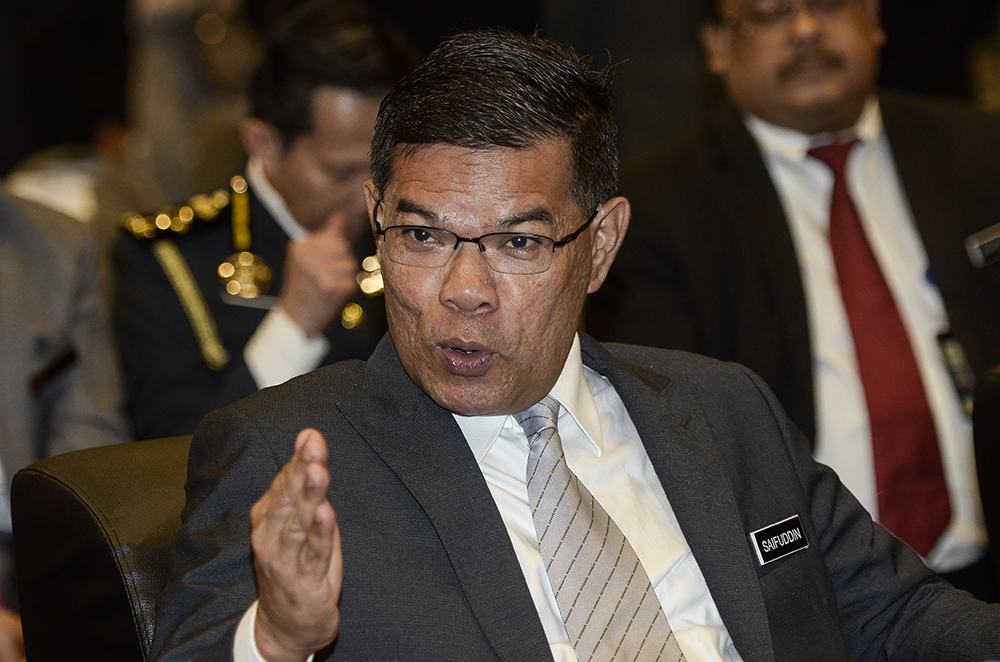KUALA LUMPUR, Sept 5 — Corruption can gradually decline when the core leadership of a country is clean, said Domestic Trade and Consumer Affairs Minister Datuk Seri Saifuddin Nasution Ismail.
He said that leadership by example in the highest echelons of the government is critical in achieving a state where citizens do not condone corrupt practices
“As the saying goes, “a fish rots from the head”, the reverse must also be true. Leaders must be committed to integrity and embody accountability and anti-corruption,” he said when delivering the closing keynote address at the Malaysia Anti-Corruption Forum themed ‘Understanding and Addressing the World’s Biggest Problem’ here today.
He said recent data released by the Malaysian Anti-Corruption Commission (MACC) revealed that 46.3 per cent out of the 4,860 individuals detained for graft from 2014 to June 2019 were civil servants, which was a grave cause for concern.
Saifuddin also said that a study conducted by MACC also revealed that 22.1 per cent of respondents from the civil service said that they were willing to receive bribes if they had power or position.
“This shows that there is an urgent need for the government to institutionalise anti-corruption efforts,” he said.
However, he said, that the fight against corruption could not be mounted, let alone be won, by policies, campaigns, laws and punitive measures imposed by the government alone, and instead must involve every member of society.
“I urge all of you to continue to hold us accountable. Be ever vigilant and unforgiving to any instances of corruption. Feel free to report any acts of corruption to the MACC regardless of who committed it,” he said.
He said the Pakatan Harapan government is unwavering in its commitment to combat corruption, where various measures have been taken by the government and the MACC to stamp it out.
The efforts, he said, have begun to bear fruits with Malaysia improving its position on Transparency International’s Corruption Perception Index, Reporters Without Borders’ World Press Freedom Index and advancing nine places to 15th spot out of 190 countries in the World Bank’s Doing Business 2019 Report.
In January this year, Prime Minister Tun Dr Mahathir Mohamad unveiled a five-year National Anti-Corruption Plan (NACP) which reflected the people’s aspirations for a greater corrupt-free nation that promotes transparency, accountability and integrity.
The Malaysian Anti-Corruption Forum, brought by the International Strategy Institute (ISI) is a platform to bring together all concerned Malaysian citizens, government authorities, the media and private sector to discuss, exchange ideas and formulate key proposals to be submitted to the MACC. — Bernama



















